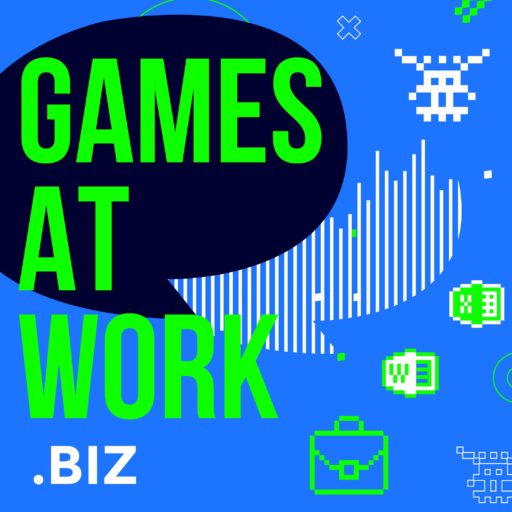
Published 22 July 2024
Michael R and Andy get together to talk through this week’s stories while Michael M is away.
The cohosts start things off with a discussion on The Sphere, the Las Vegas landmark which uses 1.23 million LED ‘pucks’ to put on an impressive video display powered by 150 NVidia GPUs according to the Hackaday article. Interested in seeing Dead & Company in this immersive experience? Check out the show notes and make your plans before August 10th.
After a discussion on OpenELM, the pair turn their attention to OpenSCAD and a conversation on how to tame that under desk tangle of cords with an open source solution called Underware.
Next up, a conversation on floppy disks still in productive use as well as a Windows emulator for iPhone, iPad and Apple Vision Pro devices.
Wrapping up the episode are conversations about other podcasts. Are there other podcasts beyond Games at Work? Apparently so. An interview with the “What If?” app creator is followed by the science of board games, with an intriguing factoid: that drunkeness helps you reach nirvana. At least in one particular chutes and ladders style game.
What strange rules or gameplay quirk have you exploited in a board game to help you win? Have your bots 🤖 drop our bots 🤖 a line at @gamesatwork_biz (our home for now) and let us know!
These show notes were lovingly hand crafted by a real human, and not by a bot. All rights reserved. That’s our story and we’re sticking to it.
Selected Links
Power and Resources
Hackaday article: Las Vegas’ Sphere: Powered by NVidia GPUs and With an Impressive Power Bill
Games at Work e399: It’s CES Week
AI
9 to 5 Mac: Apple says its OpenELM model doesn’t power Apple Intelligence amid YouTube controversy
OpenELM on Hugging Face
3D Printed Organization
Hands on Katie: Underwear
Wikipedia article: OpenSCAD
Old Stuff
Ars Technica article: German Navy still uses 8-inch floppy disks, working on emulating a replacement
ByteCellar article: A Look at the Short-Lived 3-Inch Compact Floppy Disk
The Verge article: After initially rejecting it, Apple has approved the first PC emulator for iOS
Non Games At Work Podcast episodes
Upgrade e521: I Can Get Pineapple Into Anything
The Infinite Monkey Cage: Science of Board Games – Jess Fostekew, Marcus du Sautoy and Dave Neale
Nathan W. Pyle post
Podcast: Play in new window | Download (Duration: 38:33 — 53.6MB) | Embed
Subscribe: Apple Podcasts | Spotify | Amazon Music | Android | Podcast Index | Youtube Music | RSS | More



